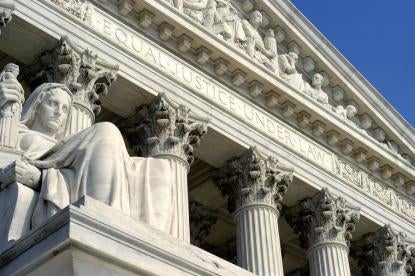On January 13, 2017, the United States Supreme Court consolidated and granted review of the three following cases involving the legality of arbitration agreements which contain class action waivers: National Labor Relations Board v. Murphy Oil USA, Inc., from the 5th Circuit, Epic Systems Corp. v. Lewis, from the 7th Circuit, and Ernst & Young LLP v. Morris, from the 9th Circuit.
The NLRB, most notably with its 2012 decision in D.R. Horton, has routinely held that arbitration agreements containing class action waivers violate employees’ rights under the National Labor Relations Act (“NLRA”). The courts, however, have taken a variety of stances on the issue, and these three cases present the Supreme Court with a an opportunity to resolve an issue that has divided the Circuits.
In Murphy Oil, the Fifth Circuit overturned the NLRB’s order invalidating the arbitration agreement at issue and noted that the NLRB had “disregarded” the Fifth Circuit’s contrary ruling in D.R. Hortonthat arbitration agreements with class action waivers are enforceable and not unlawful. The particular arbitration agreement at issue in Murphy Oil, however, underwent a revision in 2012 to account for the NLRB’s D.R. Horton order. The Fifth Circuit held that the prior version of the arbitration agreement violated the NLRA, but upheld the revised agreement because it added the following clause: “[N]othing in this Agreement precludes [employees] . . . from participating in proceedings to adjudicate unfair labor practice [] charges before the [NLRB].”
In Epic Systems, the Seventh Circuit relied on the NLRB’s reasoning in D.R. Horton and held that the arbitration agreement at issue violated the NLRA and nothing in the Federal Arbitration Act (“FAA”) mandated a contrary result.
In Ernst & Young, the Ninth Circuit took a similar approach to find that the NLRA precludes enforcement of arbitration agreements that waive collective action claims. For more detail regarding the Ninth Circuit’s decision, see here.
Somewhat tellingly, the decisions in Epic Systems and Ernst & Young both acknowledged that the Circuits are divided on the question, with the Fifth, Second and Eighth Circuits on one side of divide, and the Seventh and Ninth Circuits on the other.
Although the Supreme Court’s resolution of this contentious issue would be a welcome development, there is the possibility of a 4-4 tie (pending appointment and confirmation of a ninth justice), which would leave the current division in place. The exact date for oral argument has yet to be determined, and it remains uncertain whether a ninth justice will be in place by the time the cases are heard.
Moreover, while the NLRB has consistently invalidated class action waivers since D.R. Horton in 2012, the board’s membership is set to change with the incoming administration, which may impact the NLRB’s position on the matter. Not only will President Trump be able to immediately fill the two vacancies on the five-member board, but he will also have the opportunity to appoint a new NLRB General Counsel when Richard F. Griffin, Jr.’s term expires in November 2017.




 i
i

